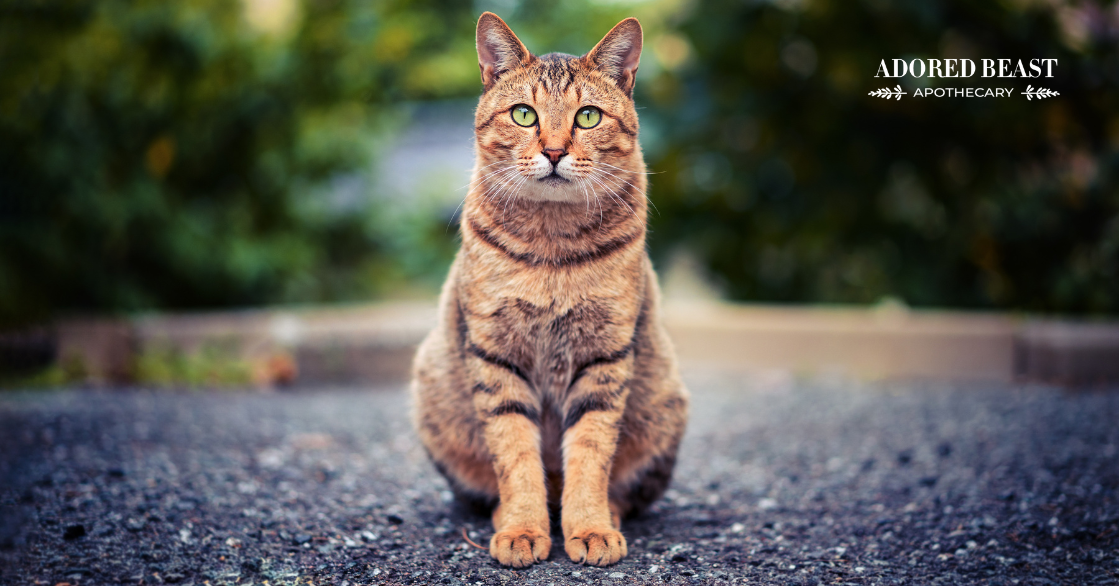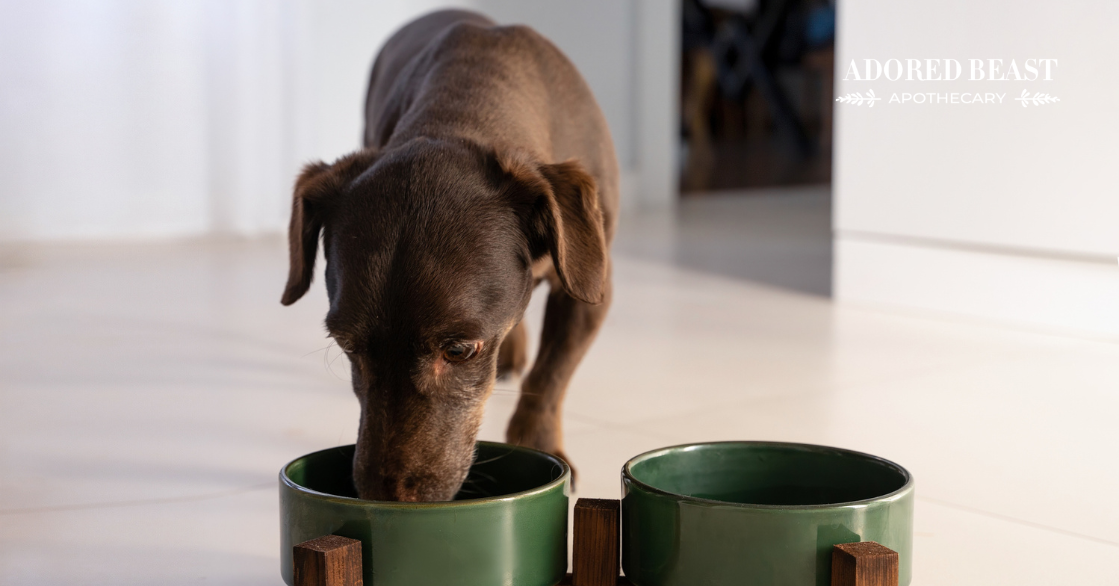As pet parents, we try our best, but the fact is, we live in a toxic world. And that means our pets do as well.
Many of us do routine detoxes to help our bodies get rid of those toxins. And a while ago, we wrote about detoxing our canine companions. After all, they’re far more susceptible to damage from everyday toxins because their bodies are smaller than ours. But we were remiss – we left kitties out of the equation, and detox for cats is just as important as for dogs!
This week, we’re going to fix that. We’re going to talk about why and how to help give your feline friend a good body clean out to help encourage health and longevity. It’s a very simple thing to do and will have lasting impacts on overall health!
Toxins in Your Cat’s World
When we talk about toxins in your cat’s environment, there are so many different things that can be an issue:
- pesticides and herbicides like glyphosate
- vaccines
- cleaning products
- mold
- food additives
- exhaust fumes
- flea and tick meds
- shampoos and grooming products
- perfumes and body lotions
- yeast
- household deodorizers
- chemical fire retardants
- fluoride
- and the list literally goes on and on…
Whether your cat is strictly an indoor cat, or they roam around the garden or the neighbourhood, they’re encountering harmful toxins each and every day.
And while your beloved kitty’s body can get rid of some toxins on its own, it is incredibly difficult to clear out them all without additional support.
Ok, so we know detox for cats is important, so how do you do it?
Detox for Cats: The Basics
There are several things you can start doing today to get rid of some of the toxins your cat’s body (and your own) is taking in.
A quick note before we start though – there are many different levels of detoxification. Here at ABA we’re not huge fans of intense detoxification. We like gentle, so as not to overwhelm the different systems. These are some ways to achieve that gentle detox for cats.
1. Clean Out Your Cat’s Food
These days, unfortunately, a lot of the chemicals in our animals’ bodies come from the food they eat. This is especially true if they eat processed food. The more processing and the more ingredients, the greater the problem.
To help mitigate the issue, opt for fresh food. You can feed fresh in full (raw, cooked) or even just adding some fresh to the bowl. Go for organic foods whenever possible. Look for cage-free, free-run, ethically-raised meats and poultry. Add antioxidants like phytoplankton to help with the clean out.
The same goes for their water. Tap water often contains things like chlorine and fluoride, which is so bad for a cat’s kidneys, so reach for filtered water as a better alternative.
2. Clean Smarter
Our cats, especially those who don’t go outside, are very susceptible to the toxins in our homes. And some of the largest offenders are household cleaning products. Floor cleaners, furniture polish, window cleaner, even scented candles, air fresheners and plug-ins, and fabric sprays, are all putting harmful chemicals into the air and laying in wait on surfaces your cat walks or sleeps on.
Instead of using chemical-based products, opt for more natural options, such as vinegar, castile soap, and baking soda. Lavender or lemongrass both cat safe essential oils that can naturally freshen the air using a diffuser.
3. Support the Detoxification Organs
There are several organs in your cat’s body that are responsible for detoxification. The liver’s primary role is to get rid of toxins, so you want to keep it running as efficiently as possible. The kidneys are also crucial for detox. They filter toxins from the body as many as 70 times a day!
These are some of the best herbs for cleansing and detoxifying the liver and kidneys.
- Milk thistle works to stabilize liver cell membranes and acts as an antioxidant to protect liver cells from free radical damage. Don’t use milk thistle all the time unless your cat has a chronic liver disease (speak to your vet) – a few times a year is good. Also, don’t give to pregnant or lactating animals. For detoxification, milk thistle is best used in other formulations for organ support.
- Parsley isn’t only good for flavouring your favourite dishes. Its diuretic properties help it filter toxins through the body and out through urine. Some cats won’t eat it, but if yours will, chop up and add a tiny pinch of fresh, flat-leafed parsley to your cat’s meals once a week.
- Vitamin E and C are both powerful antioxidants that will seek out damaging free radicals and eliminate them. Because they can help strengthen the immune system, they’re great options when it comes to detoxification. Eggs, salmon, grass-fed beef, and fish eggs are all good sources of vitamin E. Cranberries, strawberries, cantelope, and green leafy vegetables.
- Dandelion root supports bile secretion and healthy digestion, as well as healthy liver and kidney function. It also supports the removal of toxins from the body. With dandelion root, be careful because it can work like a diuretic – speak with your vet first. Like milk thistle, dandelion root is better used in other formulations for organ support.
- Fulvic and humic acid are ancient minerals that are increasingly difficult to get in the human body through food. But they’re great for detox! Humic acid helps break down salt acids that build up on the cell membrane, and fulvic acid has the innate ability to transport nutrients into and flush toxins out of the cell.
If your cat is picky (as so many are), try our Liver Tonic. It supports the health of the liver and kidneys by helping regenerate healthy liver cells and boosting the organs’ ability to filter toxins from the blood and waste from the body. It contains milk thistle and dandelion root, as well as barberry and greater celandine.
Both you and you furry family members can benefit greatly from a clean out – both of your environment and your body. A gentle detox for cats can really help to give overtaxed systems a break, and keep them running in tip-top shape. This can help prevent chronic disease and illness for everyone.












